Nutan

Subscribe to read full article
This section is for paid subscribers only. Our subscription is only $37/- for one full year.
You get unlimited access to all paid section and features on the website with this subscription.
Not ready for a full subscription?
You can access this article for $2 , and have it saved to your account for one year.
- Real Name: Nutan Samarth
- Born: 4 June 1936 (Bombay)
- Died: 21 February 1991 (Bombay)
- Primary Cinema: Hindi
- Parents: Shobhana Samarth , Kumarsen Samarth
- Spouse: Rajneesh Bahl
- Children: Mohnish Bahl 1
The actress Nutan was born on 4 June 1936 to the actress Shobhana Samarth and the filmmaker Kumarsen Samarth. Shobhana Samarth was a popular star in the 1940s, and the gift for acting seems to have carried over into her two daughters, Nutan and Tanuja. Nutan and Tanuja also had two siblings, sister Chatura and brother Jaideep.
Like her mother Shobhana, Nutan studied at Baldwin’s High School in Bangalore. Good at swimming, horse-riding, driving cars and badminton, she had a leaning towards an outdoorsy life. She was also very fond of music and learnt classical music for four years under the tutelage of the famous maestro Jagannath Prasad. Unfortunately, her voice was too thin and piping to be considered melodious. Confident and completely devoid of stage fright, Nutan gave her first public performance at the Taj Mahal Hotel in Bombay when she was only two and a half years old. Trained in dance, she was keen to display her prowess. Falling easily into her life as a celebrated artiste for years to come, she signed her first autograph in 1941. She was only five years old, a participant in a variety programme featuring Juthika Roy, the Nightingale of Bengal. At eight, she acted onscreen for the first time in Nala Damayanti (1945), a film directed by her father.
Nutan officially made her screen debut a few years later in Hamari Beti (1950) when she was barely fifteen years old. Her mother trained her in facial expressions and helped her overcome juvenile mannerisms she was prone to. The veteran actor Motilal made her rehearse every scene in the film, leaving no stone unturned to make sure she provided a good performance. Though Hamari Beti did not accrue much success at the box offices, their joint efforts paid off, and Nutan’s performance in the film was hailed as natural and demonstrating the signs of great promise. Contracts soon started pouring in, and within six months, the young actress had more work on her hands than she had expected.
Her second film was Pancholi’s Nagina (1951), a mystery drama. Her age was not always to her advantage, as she realized when she was not allowed to view her own performance in the Adult-certified film. In Zia Sarhadi’s Hum Log (1951), she played Balraj Sahni’s sister, an aspiring playwright. Her roles in Hangama (1952), Malkin (1953) and Shabab (1954) won her further praise. Nutan also played the age-old character of Laila in P N Arora’s Laila Majnu (1953) with refreshing dignity opposite Shammi Kapoor. She also acted in Shikwa, rumoured to be a breakout performance, directed by Ramesh Saigal around this time. Started in 1951, the film starred Dilip Kumar as the male lead. Unfortunately, it could not be completed.
In 1952, Nutan also entered a beauty pageant while on a holiday in Mussoorie with her mother. She won the title of Miss Mussoorie. Despite her stunning looks, however, Nutan often faced criticism for being too skinny in her early career as an actress.
After she had worked continuously in films for some time, Nutan went on a sabbatical to Paris and Switzerland in 1954. She attended the La Chatelaine school near Geneva, where she learned French, took up a secretarial course and made numerous friends. After a few months at the school, she returned to India lovelier than ever before. She returned to the screen with a standout performance in Amiya Chakrabarty’s Seema (1955). She reunited with Balraj Sahni in her role as a delinquent sent to a reform home. Unlike her contemporaries Nargis and Meena Kumari, Nutan brought to the screen the angry woman, one often misunderstood by many, even questioning the existence of the gods. Her powerhouse performance won her the first Filmfare Award of her career for Best Actress in a leading role.
Following Seema, Nutan gradually rose to the top among other younger heroines on the power of her studied performances in a range of roles. She demonstrated her versatility as an actress with films like Baarish (1957), Paying Guest (1957), Chandan (1958), Dilli Ka Thug (1958), Aakhri Dao (1958) and Anari (1959). Her other films of the time include Chhalia (1960), Chhabili (1960) and Manzil (1960). Nutan also sang her own songs for Chhabili.
Nutan’s historic achievement came with her appearance in Bimal Roy’s Sujata (1959) opposite Sunil Dutt. The film won unstinted praise from all, including the then Prime Minister Pt. Jawaharlal Nehru. Nutan’s arresting portrayal of a girl born into a lower-caste family but brought up by an upper-caste one earned her the Filmfare Award for Best Actress again in 1960. Bimal Roy and Nutan collaborated again for his film Bandini (1963) in 1960. Though she was pregnant with her first child at the time, she continued shooting for the film. Her dedication was rewarded with well-deserved acclaim, and the film is still remembered for featuring Nutan’s best-ever performance in her career. As Kalyani, a jilted young woman accused of murdering her lover’s wife, Nutan shone, able to portray a whole range of emotions without ever resorting to over-the-top histrionics. Her restraint and intelligent approach to her craft showed to best advantage in the scene where she is depicted in the act of murder itself. She won her third Filmfare Award for Best Actress in 1964 for her work in Bandini.
By this time, Nutan was married to the Naval officer, Lieutenant Commander Rajneesh Bahl. Married in 1959, the couple had a son on 15 August 1961. Their son Mohnish Bahl later went on to become a well-known face both in the Hindi film and television industry.
Nutan continued to work throughout the 1960s, appearing in films like Dil Hi To Hai (1963) with Raj Kapoor, Khandan (1965) and Milan (1967) with Sunil Dutt, Tere Ghar Ke Samne (1963) opposite Dev Anand, Dil Ne Phir Yaad Kiya (1966) with Dharmendra, and Saraswatichandra (1968) opposite the one-time hit Manish. She won her fourth Filmfare Award for Best Actress for Milan in 1968.
Over the 1970s, Nutan appeared only in select films like Maa Aur Mamta (1970), Sajan Bina Suhagan (1978) and Kasturi (1980), but this did not prevent her leaving her customary impact on the audience. She acted in the critically acclaimed Saudagar (1973), opposite then newcomer Amitabh Bachchan. Directed by Sudhendu Roy, the film was selected as the Indian entry for the Best Foreign Language Film at the Academy Awards as well. For her performance in the film, Nutan won a nomination for the Filmfare Best Actress award. Her role in Raj Khosla’s Main Tulsi Tere Aangan Ki (1978) ensured her fifth Filmfare Award for Best Actress in 1979. By the 1980s, Nutan started receiving offers to play roles as mothers onscreen, and she acted in films like Meri Jung (1985) and Karma (1986). Even in her supporting roles, Nutan stunned audiences and critics alike, and won her last Filmfare Award for Best Actress in a Supporting Role in 1986. In 1974, Nutan was awarded the Padma Shri by the Government of India.
Unfortunately, Nutan’s personal life was marred by tragedy. While she was rumoured to be in an unhappy marriage with Rajneesh Bahl, she also got into a feud with her mother Shobhana Samarth regarding tax payment and revenue sharing in Shobhana’s production house, where she was a partner. The case went to court, and Nutan and her family maintained a distance from Shobhana Samarth for years.
The last film featuring Nutan released during her lifetime was Kanoon Apna Apna (1989). In the same year, Nutan was diagnosed with breast cancer. On February 21 1991, around four thirty in the afternoon, Nutan passed away, leaving Indian cinema devoid of one of its best artistes.
References
- https://www.forbesindia.com/article/100-years-of-indian-cinema/25-greatest-acting-performances-of-indian-cinema/35125/0
- https://upperstall.com/profile/luminary/nutan/
- https://www.filmfare.com/interviews/mohnish-bahl-pays-a-tribute-to-his-late-mother-the-legendary-nutan-36666-2.html
- https://www.filmfare.com/features/dropdead-gorgeous-nutan-4663-11.html
-
Filmography (87)
SortRole
-
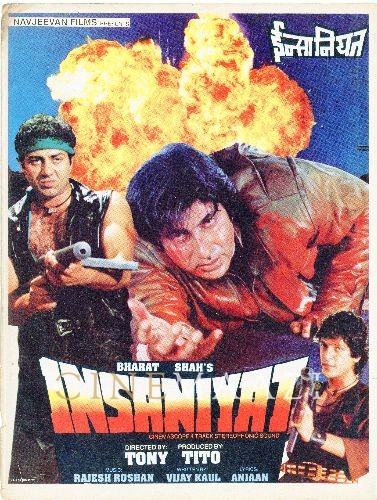
Insaniyat 1994
-
Insaaniyat 1994
-
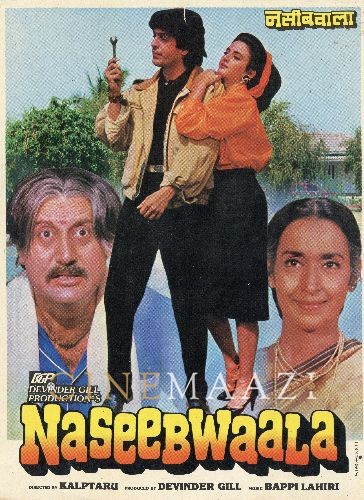
Naseebwaala 1992
-
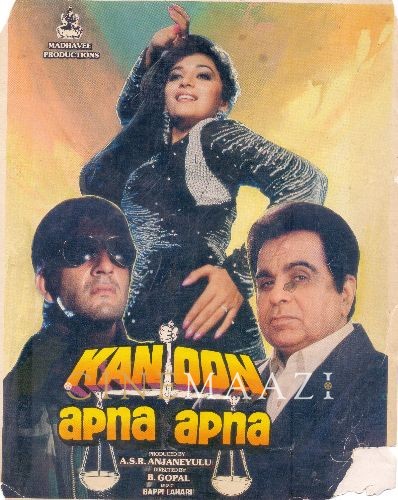
Kanoon Apna Apna 1989
-

Mujrim 1989
-
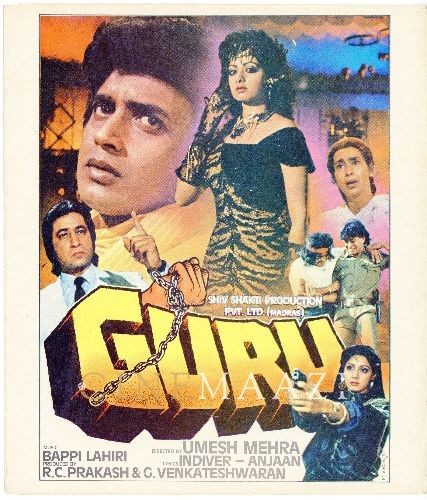
Guru 1989
-

Hifazat 1987
-
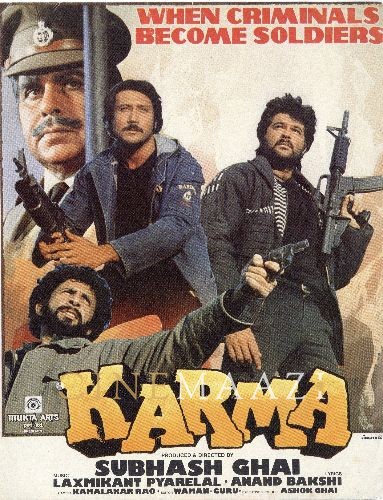
Karma 1986
-
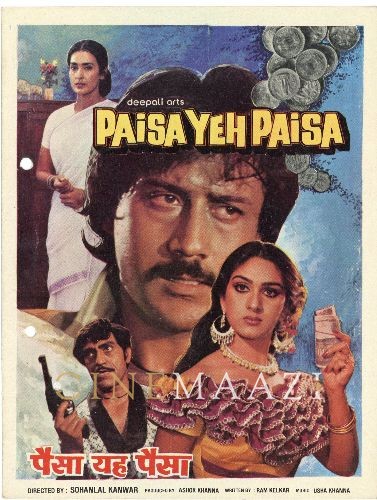
Paisa Yeh Paisa 1985
-

Pyari Bhabhi 1985
-
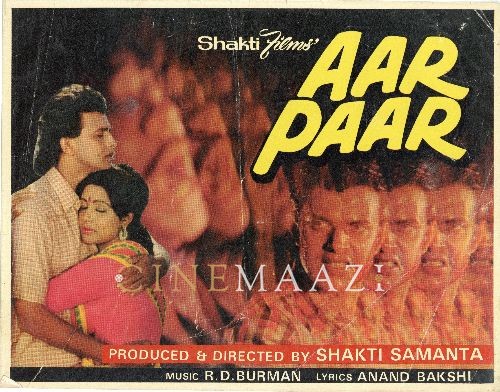
Aar Paar 1985
-
Anyay Abichar 1985
-








.jpg)



